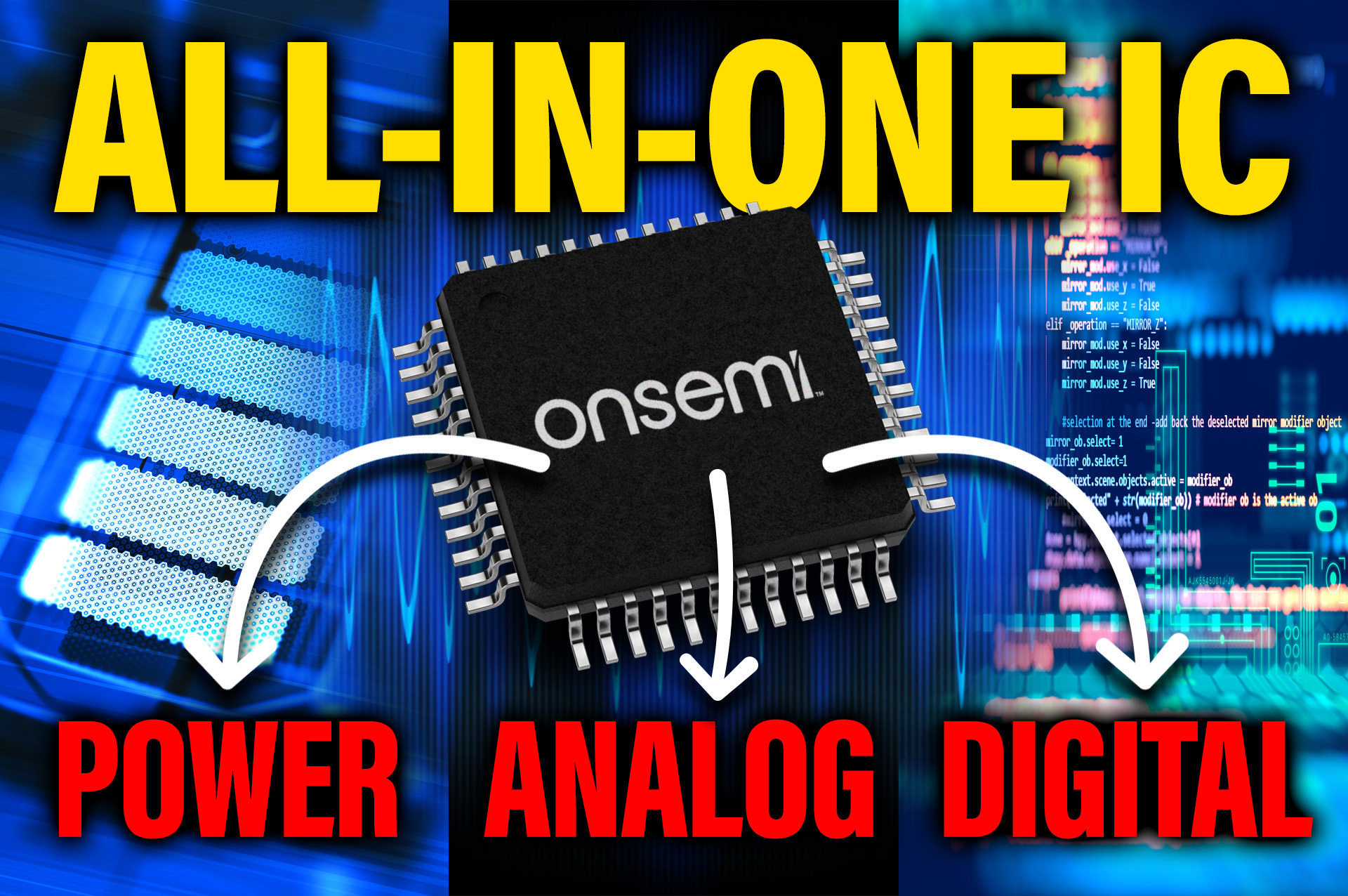If you’re an engineer who’s ever wished their analog, digital, and power solutions could all be integrated into one elegant chip, the onsemi Treo platform might be your new best friend. Shown off at PCIM 2025, onsemi Treo is a new generation of high-integration silicon that blends precision analog, high-power handling, and digital compute—all in one tightly managed process.
The onsemi Treo platform isn’t just a clever bit of engineering; it represents a shift in how we design smarter, more efficient systems. Whether you’re building automotive sensors, edge AI nodes, or high-density power converters for AI datacentres, Treo’s modularity makes it insanely versatile.
So what is it, really? Treo is built on a modern 65 nm BCD (Bipolar-CMOS-DMOS) process that allows you to stack high-voltage capability, sensitive analog front-ends, and serious digital compute without the usual cross-talk or interference nightmares. It’s not just a chip—it’s a design framework. That’s what gives the onsemi Treo platform its unique strength: it’s both a silicon process and a build-your-own IC playground.
Treo lets you pick and mix from a set of pre-developed IP blocks: want high-speed ADCs next to an AI co-processor? Easy. Need motor control logic sitting alongside a power subsystem for EVs? No problem. It’s all designed to slot together in ways that would normally take months of board-level layout and compromise.
The onsemi Treo team even showed off how they’ve used it to create everything from ultrasonic sensors to automotive Ethernet transceivers—all with in-built power regulation and signal processing. These aren’t just demos. They’re fully realised ICs, enabled by the flexibility of Treo.
And it’s not only for onsemi’s own use. They’re offering the platform as a semi-custom solution to customers who need something specific, fast. Think of Treo as the custom sandwich shop for silicon—without the calories. The onsemi Treo toolchain enables rapid prototyping, so you’re not waiting 18 months for a tape-out to see if your design even works.
Even more exciting is how this all connects to AI infrastructure. Treo is already being used to power data centre processors, where clean, efficient, monitorable power delivery is a must. So yes—the onsemi Treo platform might just be that unicorn engineers have been dreaming of: the chip that really can do it all.
Comments are closed.

Comments
No comments yet